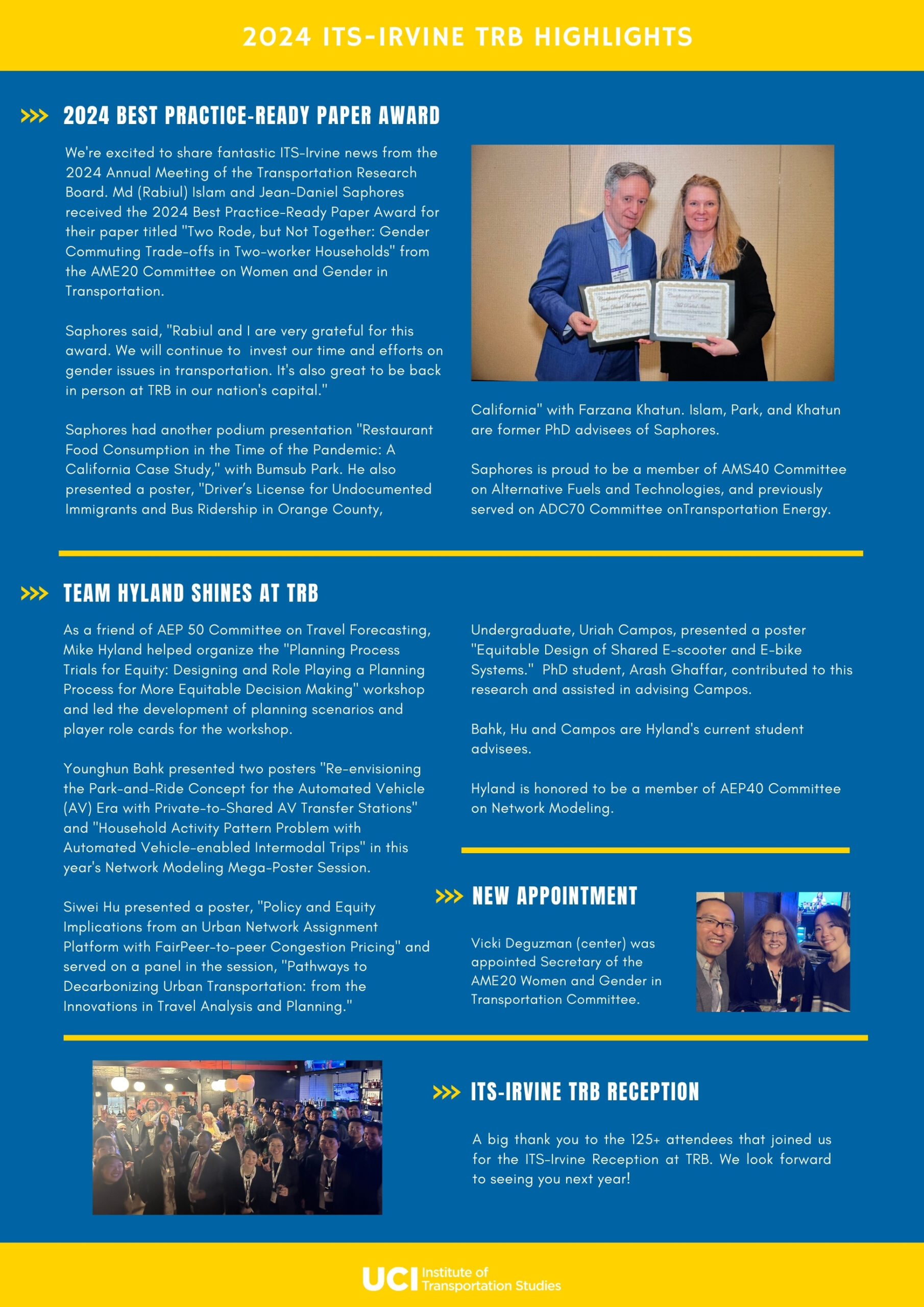“Geoffrey is an exceptional student with a passion for transportation. After his performance in my undergraduate course covering optimization in the context of civil engineering this past winter, I was excited for him to conduct research with me this summer through the TRIP program. Geoffrey has been an invaluable asset to our team, and I am excited to have him continue with us on a funded research project this fall.”
-Michael Hyland, Advisor
How did you hear about this summer research program?
I took a class with Professor Hyland and worked with him throughout the year. I was very interested in the subject matter of mathematical programming and optimization. Professor Hyland told me about this summer program and I was very happy to be selected.
What interested you most about it?
There was a lot of appeal to me about this program; my favorite part is being exposed to such cool and interesting research so early in my academic career. I didn’t know Transportation Systems Modeling and Analysis even existed as a field until about four months ago, and now I can spend the rest of my undergrad (and possibly grad school) studying it.
What are your career goals?
My end goal is to work for a public agency and help develop transportation solutions in a big metropolitan area. I also am interested in working in rail logistics for a freight rail company, or being employed at a large port could be great too.
Why are these kinds of summer research programs helpful to students like you?
This program helps me become a better researcher, student and engineer in many ways. Chief among them is how I am encouraged to think for myself and develop solutions without a right answer, which is much different from many classes I am taking. I am also learning hard skills including research, programming and writing that are applicable in my future.
How will this program help you in school and/or your eventual career?
The TRIP program helps me understand the world of research better and how to explore my interests deeper than before. It allows me to build connections that help in future academic or career pursuits.
What intrigues you about research?
Research in transportation explores the unknown worlds where we can design whole new systems, which I find fascinating. I love poking around in the hypothetical so that we can help industry and policymakers make decisions in the real world.
What intrigues you about transportation?
Transportation is so fundamental to how we live our lives. Any improvement to transportation serves to enhance the lives of everyone, especially those who have been historically excluded. I love the challenge of serving the public by building up our systems.
What do you like most about the project on which you are working?
My current project, Quantifying “Shareability” in Transportation Networks using Graph Theory, is teaching me a lot about computer science, high level math, and their intersections with civil engineering. I enjoy seeing how the fields connect and overlap, which allows us to solve incredibly complex problems.
What do you hope to learn and/or discover as part of this project?
I hope to discover a new passion for computer science. I always thought coding was something I would never grasp, but I am figuring out that it is a valuable skill that I can begin to master in this program.
What is something interesting few people know about you?
I hiked Half Dome in Yosemite with my good friend, Sheryl.
What is your superpower?
I am a certified lifeguard!
What is something unique about you?
I played water polo for six years, from middle school to the end of high school.
